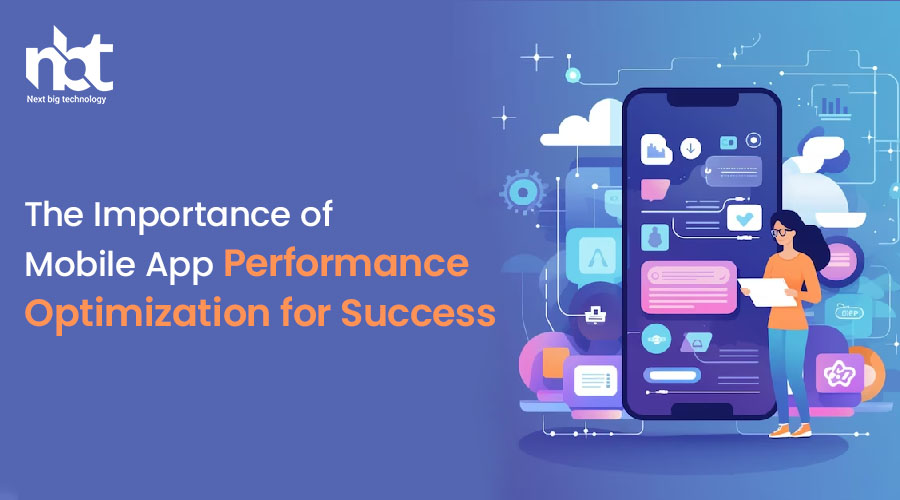Table of Contents
Why Mobile App Performance Matters
Impact on User Experience
The user experience is at the forefront of any successful app. Slow loading times, unresponsive interfaces, and laggy navigation can quickly deter users, leading to high bounce rates and low user retention. Optimizing app performance ensures a seamless and enjoyable experience for users.
Connection to User Retention and Engagement
Studies show that users are more likely to abandon an app if it doesn’t meet their performance expectations. A well-optimized app not only retains users but also encourages prolonged engagement, positively impacting the app’s success metrics.
Factors Affecting Mobile App Performance
Loading Speed and Latency
One of the primary factors influencing app performance is loading speed. Users expect apps to load quickly, and any delay can lead to frustration and dissatisfaction. Optimizing loading times is crucial for retaining user interest.
Responsiveness and Smooth Navigation
A responsive and smooth app navigation contributes significantly to user satisfaction. Performance optimization focuses on eliminating glitches, ensuring that users can navigate effortlessly within the app.
Resource Utilization
Efficient use of resources, including CPU, memory, and network bandwidth, plays a vital role in mobile app performance. Optimizing resource utilization enhances the app’s overall efficiency and responsiveness.
Benefits of Mobile App Performance Optimization
Enhanced User Satisfaction
A well-optimized app translates to a positive user experience, leading to increased satisfaction. Users are more likely to recommend and continue using an app that consistently performs well.
Increased App Retention and Downloads
Performance optimization directly correlates with higher user retention rates and increased downloads. Apps that consistently deliver a high-quality experience attract and retain a larger user base.
Positive Impact on Business Revenue
User satisfaction and retention contribute to a positive impact on business revenue. Satisfied users are more likely to make in-app purchases, subscribe to services, or engage with advertisements, ultimately boosting the app’s financial success.
Common Challenges in Mobile App Performance
Device Fragmentation
The diverse range of mobile devices poses a challenge for developers. Performance optimization must account for different screen sizes, resolutions, and hardware capabilities to ensure a uniform experience across devices.
Network Variability
Mobile apps operate in a dynamic network environment. Performance may vary based on factors such as network speed and stability. Optimization strategies need to address these variables to maintain consistent performance.
Frequent Updates and Changes
As apps evolve with new features and updates, maintaining optimal performance becomes challenging. Developers must implement strategies to ensure that each update enhances, rather than hinders, the app’s overall performance.
Strategies for Mobile App Performance Optimization
Code Optimization and Clean Coding Practices
Efficient coding practices contribute significantly to app performance. Optimizing code for speed and resource efficiency, along with regular code reviews, ensures a well-performing app.
Efficient Resource Management
Proper management of resources, including memory and CPU usage, is crucial for performance optimization. Apps should use resources judiciously to prevent slowdowns and crashes.
Utilization of Content Delivery Networks (CDN)
Content Delivery Networks distribute app content across multiple servers, reducing latency and improving load times. Integrating CDN solutions is an effective strategy for enhancing app performance.
Tools and Technologies for Performance Monitoring
Analytics Tools for Tracking App Performance
Various analytics tools provide insights into user behavior and app performance. Monitoring key performance indicators (KPIs) helps developers identify areas for improvement.
Testing Frameworks for Pre-launch Evaluation
Thorough testing before an app’s launch is essential for identifying and addressing potential performance issues. Testing frameworks enable developers to simulate various scenarios and optimize performance before users encounter problems.
Continuous Monitoring for Post-launch Refinement
Performance monitoring shouldn’t end after the app’s launch. Continuous monitoring allows developers to identify and address issues that may arise as the user base grows and usage patterns change.
Case Studies
Success Stories of Apps After Performance Optimization
Several apps have experienced remarkable success after implementing performance optimization strategies. Case studies highlight the transformative impact on user satisfaction, retention, and business success.
Real-world Examples Demonstrating the Impact
Examining real-world examples showcases the tangible benefits of performance optimization. From loading speed improvements to increased user engagement, these examples emphasize the value of prioritizing app performance.
User Perspective: How Performance Influences Choices
Survey Results or User Testimonials
Understanding the user perspective is crucial. Surveys or testimonials from users can provide valuable insights into how app performance influences their choices and satisfaction levels.
Behavior Patterns Based on App Performance
Analyzing user behavior patterns in relation to app performance reveals trends and preferences. This information is invaluable for refining optimization strategies.
Future Trends in Mobile App Performance Optimization
Emerging Technologies and Their Role
Advancements in technology, such as 5G and edge computing, are poised to impact mobile app performance optimization. Exploring these emerging technologies ensures that apps remain at the forefront of performance trends.
Anticipated Changes in Optimization Strategies
As the digital landscape evolves, optimization strategies must adapt. Anticipating changes and proactively adjusting optimization approaches keeps apps competitive and ensures sustained success.
Balancing Features and Performance
Challenges in Maintaining a Feature-rich App
Developers often face challenges in balancing feature-rich apps with optimal performance. Striking the right balance ensures that apps remain competitive without compromising user experience.
Strategies for Achieving a Balance
Implementing effective strategies, such as modular development and prioritizing critical features, helps achieve a balance between rich functionality and optimal performance.
Mobile App Performance and SEO
Google’s Mobile-first Indexing and Its Implications
Google prioritizes mobile-first indexing, considering mobile versions of websites and apps for search rankings. Optimizing app performance directly impacts SEO, influencing visibility and ranking on search engine results.
SEO Benefits of a Well-performing App
A well-performing app contributes positively to SEO efforts. Improved user experience, lower bounce rates, and higher engagement all play a role in enhancing the app’s search engine visibility.
Industry Insights and Expert Opinions
Quotes from Industry Experts on App Performance
Gaining insights from industry experts provides a broader perspective on the importance of app performance. Expert opinions offer valuable guidance for developers and businesses.
Insights from Developers and Tech Leaders
Understanding the challenges and strategies employed by developers and tech leaders enhances the collective knowledge on mobile app performance optimization.
Continuous Improvement: A Key to Success
Importance of Ongoing Optimization Efforts
Optimization is not a one-time effort but an ongoing process. Regular assessments, updates, and improvements ensure that apps maintain optimal performance over time.
Building a Culture of Performance Awareness
Fostering a culture where performance is a priority ensures that optimization becomes ingrained in the development process. A collective commitment to performance leads to sustained success.
Conclusion
In conclusion, the importance of Mobile App Performance Optimization for success cannot be overstated. As users demand faster, more responsive experiences, optimizing mobile app performance is a strategic imperative. From enhancing user satisfaction to positively impacting business revenue, the benefits are far-reaching. Developers and businesses must embrace a proactive approach to optimization, considering the dynamic nature of the digital landscape.
Thanks for reading our post “The Importance of Mobile App Performance Optimization for Success”. Please connect with us to know more about Mobile App Performance Optimization.
















